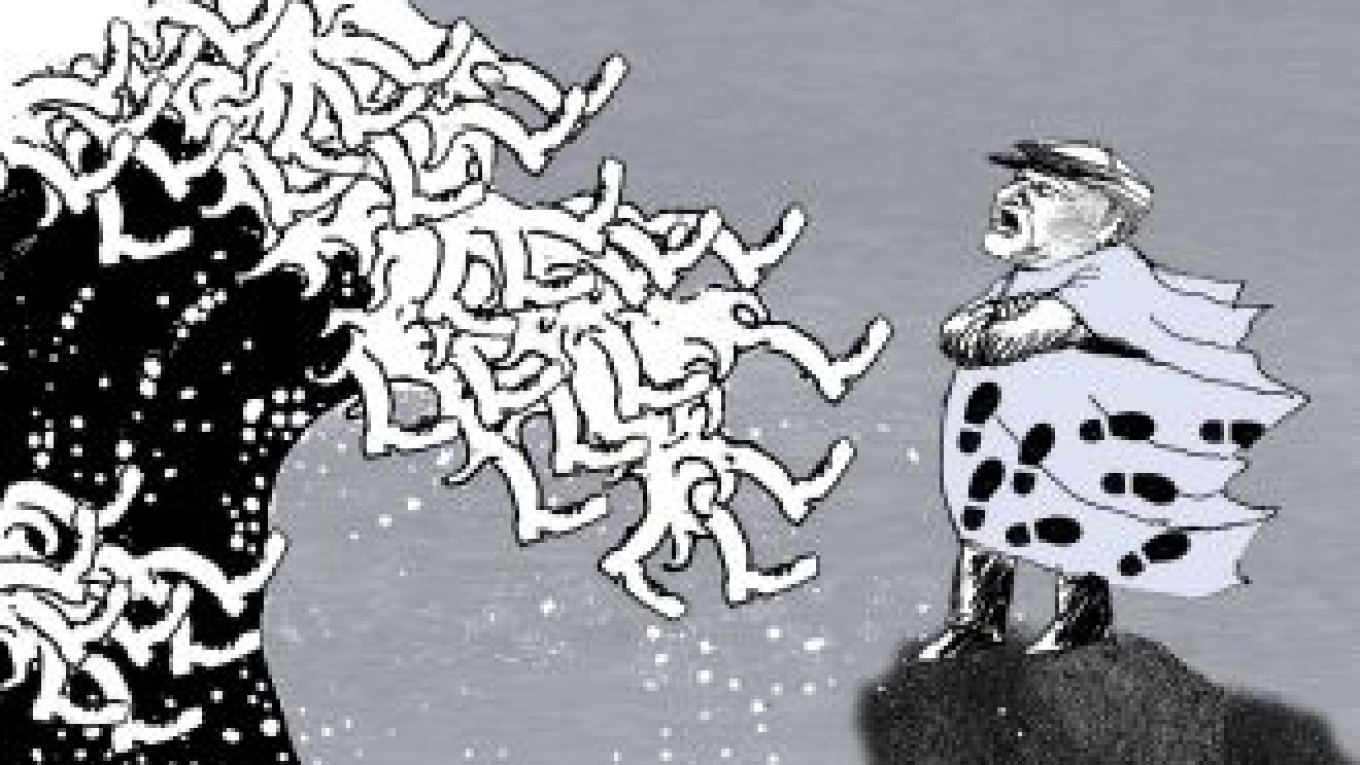We will be discussing for a long time how Mayor Yury Luzhkov’s dismissal will influence Russian politics, but it is useless to try to predict exactly how it will play out — even after Luzhkov’s replacement has been named. Russian politics simply has too many variables.
Luzhkov fought tooth and nail with President Dmitry Medvedev, refusing to accept the president’s offer to leave office on good terms. The former mayor also had sharp words for United Russia, which abandoned him as soon as Medvedev signed the dismissal decree. This helped Luzhkov earn some unexpected sympathy for having “behaved like a real man.”
The people are becoming irritated by the country’s pseudo-politics, the unprincipled opportunism and toadyism practiced by United Russia, which showed its true colors during the Luzhkov affair. It is becoming increasingly difficult for United Russia’s leaders to mask their misdeeds with flowery speeches and other platitudes.
Luzhkov plans to create an opposition movement after he reached the conclusion that Russian politicians need to stop behaving like “androids” who mindlessly obey commands from above while holding no opinions or positions of their own. Does this mark the early stages of the formation of a competitive political system in Russia?
But Luzhkov faces serious obstacles. The recent histories of many former Soviet republics are rife with examples of political leaders who were sidelined and then returned as opposition leaders and even leaders of “color revolutions.” These include Georgian President Mikheil Saakashvili, former Ukrainian President Viktor Yushchenko, former Armenian President Levon Ter-Petrossian, former Kyrgyz President Kurmanbek Bakiyev and former Ukrainian Prime Minister Yulia Tymoshenko.
Russia has its own example: former Vice President Alexander Rutskoi, who served a brief jail term for taking the side of the Supreme Soviet during the constitutional crisis in early October 1993, which culminated in tanks shooting the White House. After he was released, he was elected governor of the Kursk region. But that was a completely different era when intense political battles resembled noncontact karate, with losers going down for a moment, but then jumping up as if nothing had happened to continue fighting. Now the rules have changed. Battles are fought for blood, with losers dragged politically lifeless out of the arena. So far, there is no sign that those new rules have been abolished. Or perhaps Luzhkov thinks he is strong enough to overturn that system and reinstate the previous rules.
It would be a big mistake to hope that the situation can be improved in Moscow. It would be nearly impossible to halt the institutional corruption in City Hall, and it would also be difficult to end the destruction of Moscow’s historical and cultural landmarks or the construction of ugly buildings simply by naming “the right guy” to the job — regardless of whether he or she is a liberal reformer or a new tough boss who knows the city well.
In short, it would be impossible to remove the fundamental problems that cripple Moscow without making profound changes to the entire country. As sad as it might sound, it would be better to leave Moscow’s current system in place, even if this means maintaining the city’s high level of corruption and inefficiency. The new mayor won’t be able to significantly improve the situation anyway, and in the worst case he could cause the whole system to collapse in a matter of weeks. That is why it would be better not to meddle with anything until the federal leadership decides that it is time to make changes nationwide.
Andrei Ryabov is a scholar in residence at the Carnegie Moscow Center. This comment appeared in Vedomosti.
A Message from The Moscow Times:
Dear readers,
We are facing unprecedented challenges. Russia's Prosecutor General's Office has designated The Moscow Times as an "undesirable" organization, criminalizing our work and putting our staff at risk of prosecution. This follows our earlier unjust labeling as a "foreign agent."
These actions are direct attempts to silence independent journalism in Russia. The authorities claim our work "discredits the decisions of the Russian leadership." We see things differently: we strive to provide accurate, unbiased reporting on Russia.
We, the journalists of The Moscow Times, refuse to be silenced. But to continue our work, we need your help.
Your support, no matter how small, makes a world of difference. If you can, please support us monthly starting from just $2. It's quick to set up, and every contribution makes a significant impact.
By supporting The Moscow Times, you're defending open, independent journalism in the face of repression. Thank you for standing with us.
Remind me later.


